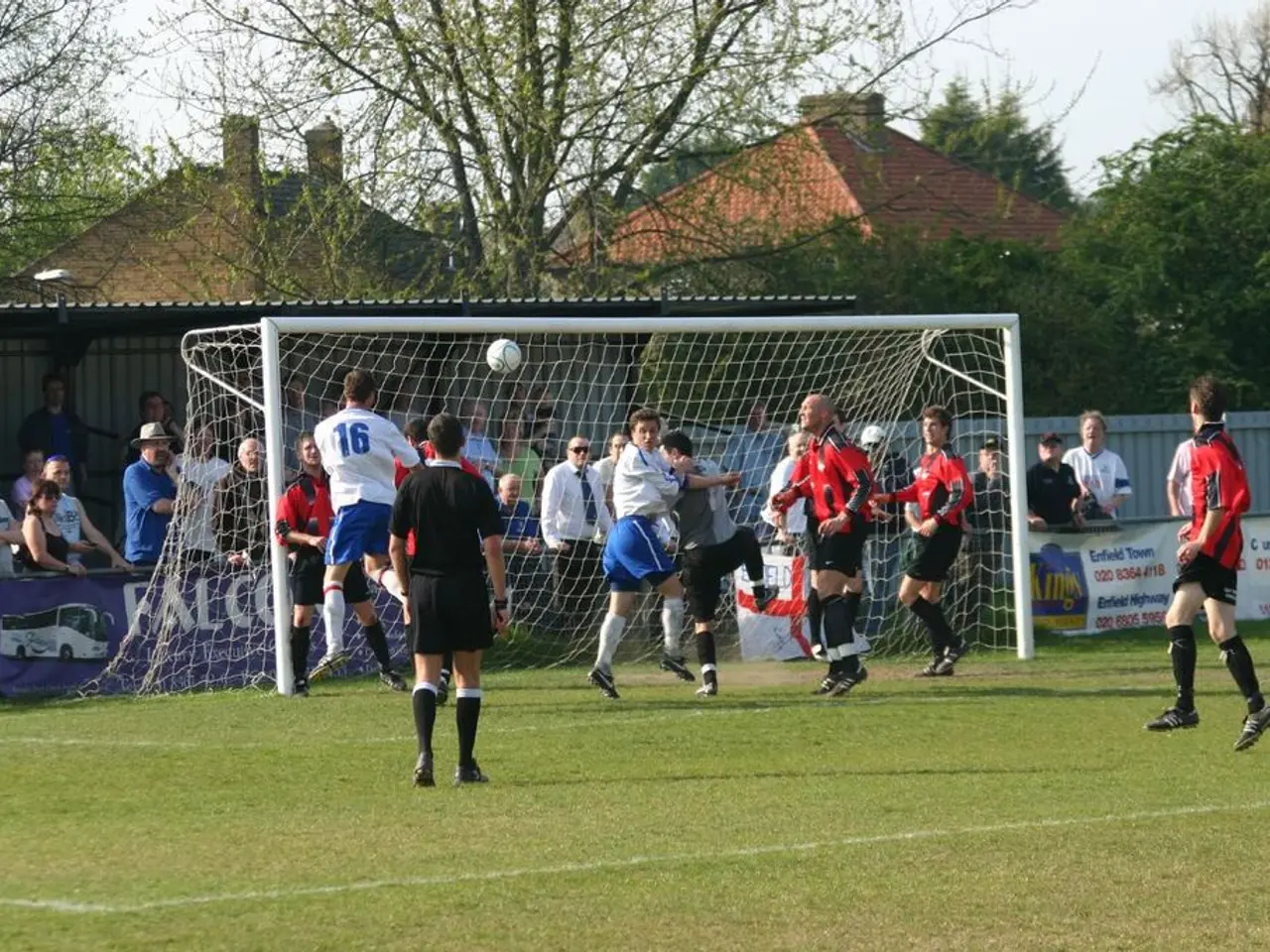Is the LGBTQ+ Community Experiencing a Backlash? A Deep Dive into Germany's Response to Increasing Hate Crimes
Is the extent of CSD parades a contentious issue?
June marks Pride month and the tradition of Christopher Street Day (CSD) parades in Germany that commemorate, celebrate, and protest the first known uprising of queer minorities against police brutality in New York's Christopher Street. This year, however, the atmosphere has grown somber amidst increasing incidents of hate crimes and right-wing extremism.
In a significant development, the rainbow flag will be raised for the first time on the Reichstag building during this year's CSD, signifying a commitment to diversity, self-determination, and an open society. Yet, this progressive step is coming to an end as the Bundestag, Germany's federal parliament, will not fly the rainbow flag on July 26, the day of the Berlin CSD parade. Instead, the Pride flag was hoisted on May 17.
Alexander Irmisch, an SPD politician and co-organizer of the CSD in Regensburg, criticizes the move, arguing it sends the wrong signal. The reasons for this change are vague, with Julia Klöckner, the Bundestag President, citing political sensitivities as grounds for the decision. However, this decision comes at a time when the LGBTQ+ community is facing an alarming rise in hate crimes. Due to an "abstract threat situation," the parade in Regensburg has been rescheduled, with operational challenges forcing organizers to prioritize security over traditional celebrations.
The Bundestag's decision to bar the participation of the queer rainbow network of the Bundestag administration has also been met with criticism. Verdi chief Frank Werneke and Germany's federal queer commissioner, Sophie Koch, have argued that such a move represents a de facto demonstration ban and sends a concerning signal to the LGBTQ+ community.
A New Era of Challenges
The rise in anti-LGBTQ+ hate crimes in Germany is a cause for concern, with incidents increasing by 18% and 35% in 2023 compared to the previous year. In response to this growing threat, Germany has made strides in creating a legal and policy framework to protect LGBTQ+ individuals, including progress on gender recognition rights for transgender people.
The European Union and international organizations such as the Council of Europe actively engage in initiatives aimed at combating hate speech and hate crimes, including those targeting LGBTQ+ individuals. Non-governmental organizations within Germany are also actively involved in monitoring and advocating for stronger protections and societal change.
According to the European Union Agency for Fundamental Rights, actions to combat hate crimes must involve both strengthening protections through legislation and addressing the root causes, such as discrimination and marginalization. Currently, organizations are working to ensure all hate crimes, including those based on sexual orientation and gender identity, are treated as aggravated offenses with stronger sentencing.
The Fight for Diversity and Equality Continues
The increase in anti-LGBTQ+ hate crimes in Germany underscores the need for continued efforts to combat discrimination and promote societal acceptance. Despite progress in legal recognition, proposed reforms, and international collaborative initiatives, the challenges posed by right-wing extremism and continued violence against transgender and LGBTQ+ individuals remain significant.
The response from political and civil society leaders, such as Karin Prien and Kai Wegner of the CDU (Christian Democratic Union), who plan to participate in the CSD, serves as a reminder that there are those who support the fight for diversity and equality. It is crucial for these efforts to intensify and to sustain momentum in order to build a more inclusive and tolerant society.
Sources:
- ILGA-Europe, 2025 Rainbow Map
- No Hate Speech Movement, Council of Europe
- FEDERATION OF EUROPEAN LGBTQI ORGANISATIONS ILGA-Europe
- European Union Agency for Fundamental Rights
- Germany's Self-Determination Law
- The increase in hate crimes against the LGBTQ+ community in EC countries, including Germany, highlights the need for continued focus on combating discrimination and promoting societal acceptance within employment policies.
- Amidst the rise in hate crimes, Germany has made progress in creating a legal and policy framework to protect LGBTQ+ individuals, with advancements in gender recognition rights for transgender people.
- The European Union and international organizations such as the Council of Europe are engaged in initiatives aimed at combating hate speech and hate crimes, including those targeting LGBTQ+ individuals, on social media and general news platforms.
- As hate crimes continue to increase, it is essential that all such crimes, including those based on sexual orientation and gender identity, are treated as aggravated offenses with stronger sentencing to deter potential perpetrators.
- Organizations within Germany are actively working to ensure that employment policies address the root causes of hate crimes, such as discrimination and marginalization, to foster a more inclusive and tolerant society.
- In the face of challenging times, prominent political and civil society leaders, like those from the CDU, participating in CSD events serve as a beacon of hope for the LGBTQ+ community, demonstrating support for diversity and equality in employment policy and various other aspects of life, fashion-and-beauty, entertainment, politics, and more.








